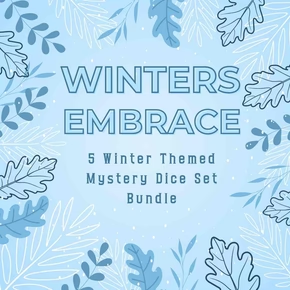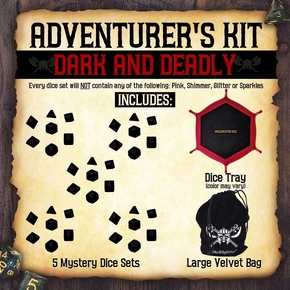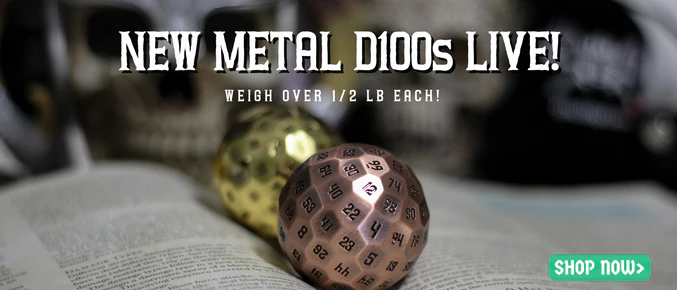
The Revival of Dungeons and Dragons in Pop Culture
Table of Contents:
How Nerdy Roleplaying Has Infiltrated Pop Culture
Young me would never have believed that there would come a time that the cool kids were into D&D. What once was relegated to the social rejects has been embraced fully by pop culture, and by our culture as a whole. How the heck did this happen? There’s no denying that we’re living in a new golden age of tabletop roleplaying, but how did we get here? How did we go from a downtrodden geeky pastime to a pillar of the cultural zeitgeist? Prepare to delve into ancient history (the 70’s) as we go through everything you need to know.
The Glory of Gygax
It’s a story you’ve likely heard before, so I won’t spend too much time on D&D’s origins. Starting in the ’70s from a tiny game published by a couple of guys in their basement, D&D grew far beyond the other fledgling pen and paper games that were left in its wake. By the ’90s, it had gained numerous competitors in countless genres and of differing qualities, but just like many people call each and every video game console “a Nintendo”, Dungeons and Dragons has become synonymous with tabletop roleplaying. But, until recently, D&D and all of tabletop roleplaying was an outsider pastime, a game for nerds and basement dwellers. Now it’s in the limelight, downright socially normal, everywhere in pop culture, and even… Cool. How the heck did we get here?
Heroes Changed from Jocks to Nerds
Hear me out, nerds have taken the jock’s place in reality, because they took it first in our media. We’ve experienced a slow transition in how we view our protagonists. Look back at westerns, film noir, and even the biblical classics like Ben Hur and The Ten Commandments. The core protagonist is a strong man, often aloof and cynical with a no-nonsense attitude. Shoot first, ask questions later, forget the eggheads, a man takes action. This is the archetypal protagonist, and therefore is the model image our culture strives to emulate.
Jump forward to the 70’s and the decade’s #1 grossing film Star Wars. American culture and to some extent world culture is permanently imprinted with a story of lasers, spaceships, and guys in furry costumes. Star Wars is doubtlessly nerdy but is elevated to the forefront of our culture regardless. A little further down at the #5 spot for the decade sits Superman as well, the first movie based on a nerdy comic book to rise to any sort of notoriety. These things didn’t make nerds and nerd culture cool, but it did normalize them. The protagonist of Superman is well, Superman, and Luke Skywalker of Star Wars may be naive at first, but he’s hardly a nerd. These movies didn’t make nerds cool, but they did lay the groundwork.
Take another step later into the ’80s and take a peek at the top 10 grossing films of the decade. We’ve got 3 Indiana Jones films, and while Indie still possesses all of those strong and cynical protagonist traits, he’s also a tenured professor. If you took the looks and the daring adventure away, by most standards, Indiana Jones would be a nerd. Still in the top 10, we have Back to the Future, which takes a mad scientist (usually a villainous character) and makes him half of the protagonist duo. We have 2 more Star Wars films, a Batman film, and Ghostbusters, which not only has particularly geeky subject matter but places scientists in all the main roles. Finally, at the #1 spot for the decade, we have E.T. It’s yet another sci-fi film in the top spot, but it also actually contains a scene in which the older brother is playing D&D. Elliot’s older brother Michael isn’t portrayed as a dork, he’s not a walking geek archetype, and he’s presented in one of the top-grossing films of all time playing D&D as if it were normal as the protagonist begs to play.
Now skip forward to the ’90s and the early ’00s, the writers, directors, animators, and producers are primarily people who grew up in the ’70s and ’80s. Nerdy protagonists have become the norm, usually with a jerky jock antagonist. Protagonist = nerdy or socially awkward loser, antagonist = popular and aggressive jock. The number of shows and films from this era that meets this set of tropes is astounding. Protagonists often imprint on us as children, these are the examples and standards we set ourselves to. Is it really so strange now, with so many of our early icons bearing the nerd persona, that our culture has shifted to fill the mold we made for it?
Superhero Movies
It can be hard to imagine now, but there was a time that comic book heroes weren’t household names. Until Superman put his name in lights, mild-mannered Clark Kent was only known by the dorky kids who read comic books. The popularity of the superhero genre, particularly the Marvel franchise, elevated comic book heroes from obscure counterculture to prominent pop culture. Everybody knows who Iron Man is, everybody knows Batman. Comic book knowledge gradually became mainstream knowledge, and the things that nerds have obsessed over subtly became the same exact things that pop culture obsesses over.
The D&D Episode
Going back to that “writers from the 80’s” thing, writers have so often included tabletop roleplaying as a plot point that “the episode where the cast plays D&D” has become a trope.
Each one of these shows has an episode where the main characters play a legally distinct version of D&D, or at least some form of RPG:
- Buffy the Vampire Slayer
- Crossing Jordan
- Freaks and Geeks
- How I Met Your Mother
- Lizzie McGuire
- Community
- Warehouse 13
- The Big Bang Theory
- Forever Knight
- CSI: NY
- The IT Crowd
- It's Always Sunny in Philadelphia
- Dexter's Laboratory
- Kim Possible
- South Park
- The Simpsons
- American Dad!
- The New Adventures of Winnie the Pooh
- Teenage Mutant Ninja Turtles
- Danny Phantom
- Futurama
- The Fairly Oddparents
- Duck Dodgers
- Regular Show
- My Little Pony: Friendship Is Magic
- The Amazing World of Gumball
- Gravity Falls
- Voltron: Legendary Defender
- Trollhunters
- She-Ra and the Princesses of Power
- The Powerpuff Girls (2016)
- Parks and Recreation
Stranger Things
Unless you’ve been living under a rock, you’ve at least heard of Stranger Things. It put Netflix on the map as a serious award winning content producer, and strangely, did wonders for D&D. Stranger Things is set in the 80’s (noticing a theme yet?) and plays out as a strangely nostalgic mixture of 80’s sci-fi horror and a 80’s coming of age crew of kids à la The Goonies. The nostalgia aside, it prominently features D&D, not just as a throwaway reference or a trope episode, but as a central theme.
As the crew encounter supernatural phenomena and monsters, they understand it through the lens of their Dungeons and Dragons adventures. The monster becomes the “Demogorgon” from their last campaign, and the strange other dimension becomes “The Upside-Down” after it is explained by literally taking a D&D game board and flipping it around.
This had the profound impact of leading new players to the hobby and spiked book sales. When season 2 of Stranger Things was released, D&D book purchases went up by an estimated 149% for that month. Doubtless, the resurgence of players caused by Stranger Things represents a sort of gravitational shift in the zeitgeist. Dungeons and Dragons is integral to things that are immensely popular, therefore it has garnered that popularity.
Critical Role
Finally, I feel that Critical Role represents the pinnacle of D&D’s acceptance in pop culture. If you’re unaware, Critical Role is a podcast about playing D&D. Not an animation, or a satire, or a scripted show of some kind about D&D, it is literally watching D&D unfold. Critical Role, in particular, has a major leg up from the rest due to their cast of talented voice actors, but at its core, the show is simply D&D as a sort of spectator sport.
Critical Role has left countless other podcasts in their wake, some of which quite good, and many of which who’s simply trying to jump on the bandwagon. The fact remains though, that people within our culture are willing to watch people play tabletop roleplaying games, a fact that I don’t think would’ve been true a couple of decades ago.
Critical Role is so immensely popular that they successfully raised over 11 million dollars for a Kickstarter campaign (one of the largest ever) to make an animated series out of part of their first campaign. Besides the show itself (which I’m highly looking forward to) consider the reality of this for a second. Some nerdy voice actors podcasted their D&D adventure, and in this day and age they’ve raised a small fortune by doing so.
D&D and Our Culture’s Future
Nerd culture is in, we’re in D&D’s golden age, who can say how long these things will last? Does all this represent some passing trends or are these permanent changes among the ebb and flow of our collective history? Each generation tends to rebel against the last, and our kids or our kid’s kids may very well ridicule us someday for our old-timey roleplaying games. What is most likely to happen and what is happening now is how D&D is replacing the classic “poker night”. Adults need ways to stay in touch with their friends, and perhaps to make new ones. D&D may very well become a new normal activity, a method in which we keep connected. After all, sports night, poker night, BBQs, all of these are largely an excuse to invite people over and crack a few beers, our generation simply seems to prefer a little dice rolling and roleplay over Texas hold ’em.
--
Enjoy this Guide? You May Also Like:
GET THE PLAYER'S HANDBOOK HERE
Need a New Dice Set? Check out our Dice here. They are perfect for every gamer as a gift or just treating yourself!
Thinking about other classes? Check out our giant list of D&D 5e Tools and Tips here.
New to find a D&D Group? Check out our guide on How to Find a D&D Group.
https://www.skullsplitterdice.com/blogs/dnd/what-is-dungeons-and-dragons

Disclaimer
Last updated: January 27, 2019
The information contained on www.SkullSplitterDice.com website (the "Service") is for general information purposes only.
www.SkullSplitterDice.com is a participant in the Amazon Services LLC Associates Program, an affiliate advertising program designed to provide a means for sites to earn advertising fees by advertising and linking to Amazon.com. (source: Section 5)
Blueshift Nine, LLC assumes no responsibility for errors or omissions in the contents on the Service.
In no event shall Blueshift Nine, LLC be liable for any special, direct, indirect, consequential, or incidental damages or any damages whatsoever, whether in an action of contract, negligence or other tort, arising out of or in connection with the use of the Service or the contents of the Service. Blueshift Nine, LLC reserves the right to make additions, deletions, or modification to the contents on the Service at any time without prior notice.
Blueshift Nine, LLC does not warrant that the Service is free of viruses or other harmful components.
Affiliate disclaimer
This affiliate disclosure details the affiliate relationships of Blueshift Nine, LLC with other companies and products.
Some of the links are "affiliate links", a link with a special tracking code. This means if you click on an affiliate link and purchase the item, we will receive an affiliate commission.
The price of the item is the same whether it is an affiliate link or not. Regardless, we only recommend products or services we believe will add value to our readers.
By using the affiliate links, you are helping support the Service, and we genuinely appreciate your support.
Affiliate advertising programs that the Service uses are:
- Amazon Services LLC Associates Program
- As an Amazon Associate, I earn from qualifying purchases.
- Blueshift Nine, LLC is a participant in the Amazon Services LLC Associates Program, an affiliate advertising program designed to provide a means for sites to earn advertising fees by advertising and linking to Amazon.com or endless.com, MYHABIT.com, SmallParts.com, or AmazonWireless.com.
- Pages on this Service may include affiliate links to Amazon and its affiliate sites on which the owner of this Service, Blueshift Nine, LLC, will make a referral commission.



